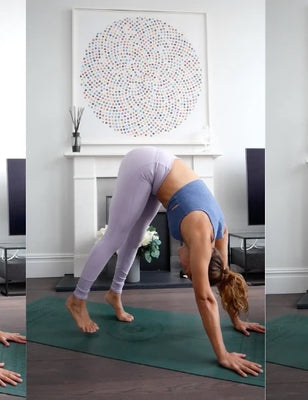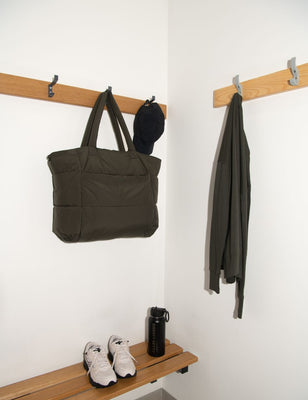You’re tired and confused. You can’t concentrate. People are talking to you but you feel completely disconnected. Worse still, your entire body aches from your last workout. If all of the above sounds familiar, you may be experiencing the dreaded athletic burnout.
It’s far from healthy and could be dangerous to your mental state in the long run. You need to protect yourself. Within this guide, we will take a look at what burnout is, what causes it, and how you can go about preventing it. Here’s everything that you need to know.

What is Athletic Burnout?
Training hard is one thing — but are you pushing yourself to your limit? Athletic burnout happens when you don’t give yourself a chance to rest and recover between physical feats. For example, if you are in the middle of training for a competition, you might be tempted to keep going past your body’s limits. That is a mistake and can be dangerous.
You might not realise that it’s happening. Understanding the signs of athletic burnout can help you spot it and make some positive changes. With that in mind, the experts suggest that the following symptoms may indicate that you are experiencing physical burnout:
- Lack of concentration or poor memory
- An inability to complete simple daily tasks
- Changes in your appetite (overeating or not eating enough)
- Irritability and easily being annoyed
- Sensitivity to sound and touch
- Confusion or feeling like your brain is playing tricks on you
- Changes in your sleep pattern and energy levels
- Disconnecting from the people around you
- Loss of interest in activities that you once enjoyed
Ignoring the signs of burnout is always a mistake. When you leave this common sports problem unattended for too long, it can quickly lead to other mental health-related issues. In serious cases, you may find that athletic burnout leads to a higher risk of depression, anxiety, and other problems. For that reason, you need to take action as soon as you can.
Note: If you are already struggling with your mental health, help is out there. You can see your GP or a counsellor. Alternatively, you may want to get some free advice from Mind.

The Two Things That Cause Athletic Burnout
Now that you understand what athletic burnout is, let’s take a look at the causes of it. You may already know the basics: when you push yourself too hard, it can lead to burnout. But why are so many of us prone to this issue? Research from the University of Essex has pinpointed two core reasons that people experience athletic burnout, as follows:
Training can be addictive. When you first get started — and start to see positive results — it’s only natural to want to work hard. However, if you’re striving for perfection, you might be doing yourself a disservice. This approach can quickly lead to physical burnout.
"There are many studies that have shown if an individual pursues perfection, whether that be in work, sport, or school, it can lead to burnout,” said study lead, Luke Olsson, from the University's School of Sport, Rehabilitation and Exercise Sciences.
"However, our study was able to determine one potential explanation as to why this is the case in sport, which suggests that the stresses of pursuing perfection can lead those to mentally disengage with their sporting activities."
Nobody wants to fail. If you are engaged in a competitive sport, it’s natural that you would want to avoid failure at all costs. Perhaps that means staying an extra 20 minutes at the gym. Perhaps it means not taking rest days between workouts. Whatever you are doing to avoid losing, you might want to consider how it is impacting your everyday wellness.
"I believe athletes may be better served by being less self-critical which should allow them to celebrate successes in performance and embrace failures as an opportunity to reflect and improve rather than beat themselves up," said Mr Olsson.

How to Prevent Athletic Burnout: 3 Quick Tips
Needless to say, you have to prevent athletic burnout before it takes over. Luckily, there are ways that you can do just that. Making sure that you’re looking after both your mental and physical health is a must. Here are some tips to help you get started.
- Use mindfulness and meditation
When you’re pushing yourself too hard, you need to reflect on why that is. One of the ways that you can overcome this problem is by using mindfulness and meditation. At times, we all get tunnel vision. You might believe your sporting success is the most important thing.
However, you need to put your mental health first. Look into ways that you can start incorporating it into your lifestyle. For example, you may want to use meditation apps to help you free your mind. Figure out what works for you and take some time for yourself.
- Stop focussing on being perfect
The latest research suggests that burnout can be a result of perfectionism. While it can be hard to get out of this mindset, you have to try. Understand that your body cannot function well if you don’t take care of it. That means focussing on long-term effects rather than simply short-term gains. Pay attention to your body and give it exactly what it needs.
- Take regular rest days (you need them!)
Rest days are vital. When you take a day to allow your body to recover, it can make all the difference. If you are failing to incorporate this into your weekly routine, you need to change your ways as soon as possible. Create a training schedule that works for your mental and physical health. If you are struggling to keep up, take things down a notch.
The Takeaway!
If you train regularly, you may be at risk of athletic burnout. However, as we have covered here, there are ways to prevent this problem. Taking control of your health will give you all of the power. Whenever you feel as though you’re pushing yourself too hard, consider ways in which you can ease off. Both you and your body deserve that level of respect!






























































